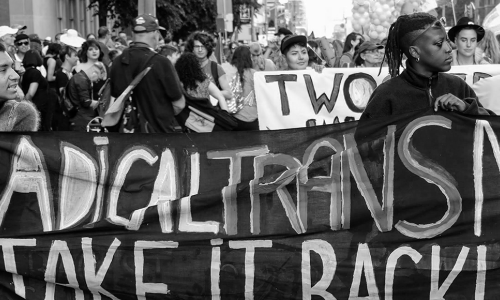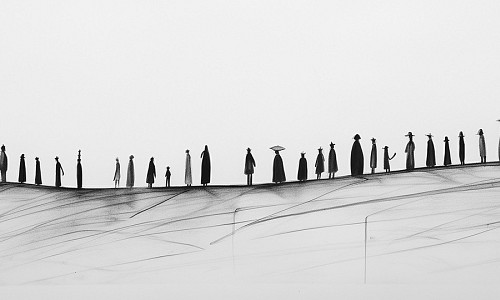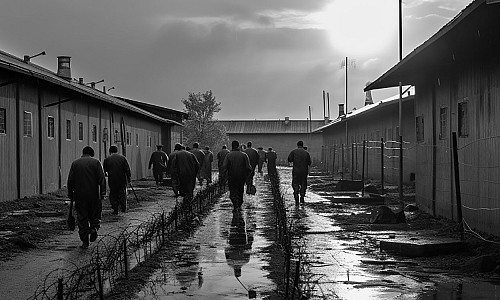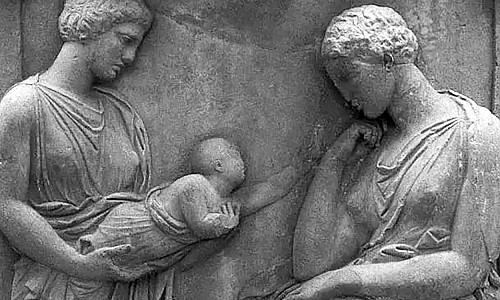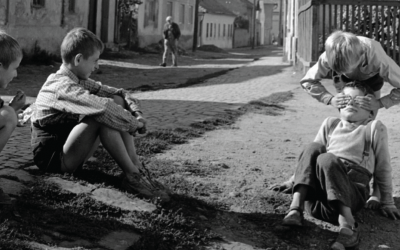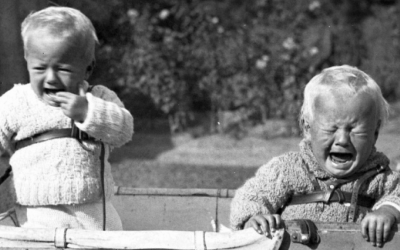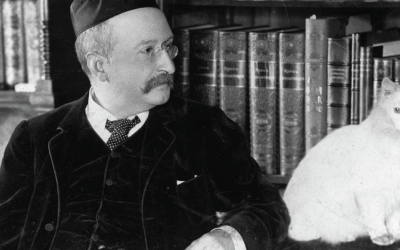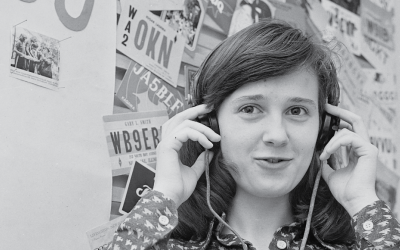Sandra Laugier reflects on the political and ethical importance of care work as revealed during the COVID pandemic.
The COVID pandemic is a global tragedy, but it also presents a strange pedagogical moment. The word care has been at the centre of the global conversation. Care work has been revealed as what keeps everyone going. And what is least acknowledged. What matters most to ordinary, but also professional lives - what makes it possible? The work of caregivers… but also cleaners, garbage collectors, cashiers, delivery people, truck drivers, and in fact, everything that matters least in the scale of values.
The importance of care and the people who take care of “us” appears to everyone, and ignorance on the part of an entire society of what makes it live, whether it be in daily life or in the urgency of the risk of death, is finally obvious. If such a moral education is possible, it is because the disaster has revealed radical vulnerabilities. The vulnerability of institutions, the vulnerability of the species; the vulnerability of fragile populations who are precisely “on the front line”, but also the vulnerability of every individual brought back to their “home” and back to their own resources, without the myriad of people and “services” that accompany them – back to housework, tidying up, even schooling… to services usually entrusted to others. The grammar of care has thus subtly imposed itself on everyone, because care is never so visible as in those situations where the “normal” form of life is shaken.
In the exposure to disaster, the truth of our dependencies emerges. We are all vulnerable, dependent on others. Men are in the majority among the sick, women among the caregivers. Women take care of our forms of life – “form of life” understood, to quote Stanley Cavell and Veena Das, both in a horizontal sense (our social life) and in a vertical sense (biological life). It is indeed these two meanings of life, biological and social, that have suddenly imposed themselves on us: the life that is given to us (mainly by women) and that we can lose; and, the everyday life, made possible or helped (mainly by women). The continuum of care activities, so complex to explain in theories, has finally become clear – the care that makes us live extends from the hospital to the supermarket.
In the crisis, women are curiously omnipresent… and absent. Present on all fronts, because they are constantly shown to us in the media: at their sewing machines, making makeshift masks; at the broom, cleaning up in hospitals and stores that are still open; at the bedside of patients, whose well-being they ensure, whose lives they save; at the cash registers of the businesses that allow us to continue a normal life. A wave of collective bad conscience is emerging; customers greet and thank the cashiers as they pay for their purchases – cashiers to whom a few weeks ago they would not have given a glance because they were too busy speaking on their phone to someone not present but clearly much more important.
This is an awareness of care, of the role of women and other “help” in our daily lives. It is the work of care that at the moment ensures the continuity of life. “Society must be defended”, certainly. But those who defend it are the invisible ones who, until recently, were taken for granted as the underwater face of society, the “taken for granted” that make our lives possible. Reduced (in whole or in part) to our domestic lives, we realise that we are in constant need of care… because suddenly, we are, each in our own way, men and women, at last, doing some of the work, the cleaning, the tidying up, the raising and schooling of children… work so often normally entrusted to others. And in public life, we heroize the work of care, first in the form of the work done in the hospital; then in other, more modest forms.
Care is at once a practical response to specific needs and a sensitivity to the ordinary details of human life that matter. Hence, care is a concrete matter that ensures maintenance (for example, as conversation and conservation) and continuity of the human world and form of life. This is nothing less than a paradigm shift in ethics, with a reorientation toward vulnerability and a shift from the “just” to the “important.” Measuring the importance of care for human life requires first acknowledging the truth: that human life forms are fundamentally vulnerable, subject to failure. To pay attention to ordinary life is to become aware of its vulnerability – it is constantly threatening to dissolve or else to reveal itself to have been unreal all along, a mere fantasy.
Human vulnerability is the “original condition” of the need for care – what needs to be taken care of and cared about. In response to the “original position” described by Rawls in his 1971 A Theory of Justice, the perspective of care would tend to set this “original condition” of vulnerability as the anchor point of moral and political thought. Not a position on which to build an ideal theory or set principles, but the mere fact of vulnerability that appears in “the difficulty of reality.” This is something that is obvious in the contexts Veena Das’s Life and Words accounts for, when violence destroys the everyday and the sense of life as defining the human.
Autonomy, so much vaunted by philosophers – and by feminists as well, and by politicians – turns out to be an optical illusion: the autonomy of some is made possible by the work of others.
Attention to the everyday is the first step in caring: care is attention, and the ethics of care calls our attention to phenomena commonly unseen, but that stand right before our eyes. Here the definition of care by Joan Tronto and Berenice Fisher has to be taken very seriously:
In the most general sense, care is a species of activity that includes everything that we do to maintain, continue, and repair our world so that we can live in it as well as possible. That world includes our bodies, ourselves, our environment, all of which we seek to interweave in a complex, life sustaining web.
The perspective of care by calling our attention to our general situation of dependence, and to the danger of denying these connections, is thus indissociably political and ethical; it develops an analysis of social relations organised around dependence and vulnerability – blind spots of the ethics of justice.
Thus, the approaches of care target the theory of justice as it has developed and taken the dominant position in both political and moral fields of reflection over the course of the second half of the last century. This is not only because, as the controversies between the partisans of care and those of justice illustrate, these approaches call into question the universality of Rawls’s conception of justice, but also because they transform the very nature of moral and social questioning and the very concept of justice.
Care is a practice, not a moral feeling or disposition: you “see the world differently” when you are attentive. In Tronto’s words:
Care is everywhere, and it is so pervasive a part of human life that it is never seen for what it is: activities by which we act to organize our world so that we can live in it as well as possible. When we get down to the ways that we actually live our lives, care activities are central and pervasive. How different the world looks when we begin to take these activities seriously. The world will look different if we place care, and its related values and concerns, closer to the centre of human life.
Yet women are the great absentees today from political reflection and action, as if the crisis, which reveals their role, kept them on the edge of the discussion, always invisible. Women are present remarkably little in the public space of media and politics, whereas many male experts are speaking out, full of certainty and competence and always proposing solutions to this crisis. This is a constant reminder of male domination in a world that is sustained by the work of women. It is also a patriarchal reminder of the monopoly of expertise and competence.
So, the perception of the world is split in two. On the one hand, this martial or heroic discourse, based on a so-called rationality of numbers, economics, science. This is the discourse of the government and most of the experts summoned by the media – mostly men. On the other hand, an ordinary life that has to react day by day to the time of COVID and take action: women in the majority. Women are confined with violent spouses at the risk of their lives, in circumstances where they have never had so little room to defend themselves. Despite progress in some families amongst younger generations, the time given to domestic work by women is still much higher, and moreover the object of many disputes.
The practices that weave human life together are relegated to the background, to the register of anecdotes, testimonies, stories of “human interest” or the gossip columns. All of these women who work to keep the world going, to recreate the ordinary, are credited with no expertise, no knowledge likely to reorganise the world. The time of the COVID, which superficially led so many people to realise what they owe to women’s care work, sets the scene for an exacerbation of patriarchy. Visible men, dominating the situation and the subject, invisible women, indispensable hands and bodies exposed to violence, contamination, overwork.
There is a beginning of moral awareness of the inversion of values through which capitalist societies have long operated: what is most truly useful, what makes our ordinary lives possible, is the most despised, and the least valued. In the exposing of the forms of life that a disaster situation brings about, the truth of our dependencies emerges.
Although men are the most numerous among the sick, women are vulnerable in a larger sense, they are massively impacted by the financial consequences of the crisis and they are also the most exposed. In addition to the fact that they are mostly part-time workers, and have to take material and mental responsibility (“the mental load”) for domestic tasks, they constitute the vast majority of single-parent family carers. Not to mention the indifference of policy-makers towards the elderly who die by the thousands in institutions – because institutionalised old age concerns women above all. And the fact turns out that “long COVID” affects them more than others.
In Europe, hospitals have a large majority of women on staff, especially at the lowest levels of the hierarchy, who are actually on the front line against coronavirus. The proportion of women is still rising among employees in nursing homes, home care workers and day-care centres. Women are in the majority at checkouts in shops, pharmacies, supermarkets. Many women have been involved in the production of hand-made masks. These women are relatively visible and taken into consideration, particularly in the media, but they are taken into account in proportion to the value given to the care activity: always described anecdotally, secondary to the struggles of doctors and the deliberations of politicians.
In the intellectual field, men sign the vast majority of the forums and analyses of the consequences of COVID published in the media. They are publishing more than before, women are publishing much less, and the numbers of articles submitted by women are dropping.
We are therefore in a position of huge ambiguity in relation to care: women’s work is still underestimated and underpaid, at the very moment when its importance emerges in the eyes of all. Care has long been the very name of what has been neglected and despised by public policies; and it is indeed the lack of attention (the lack of care) paid by governments over the last decade to all the sectors in charge of the care and protection of citizens (health, education, poverty, old age, disability) that has made the fight against COVID so difficult. A war on care has been waged for years, systematically, against the very institutions that are today taking the brunt of the health disaster, and not only the public hospital. It is not only the recognition of the work of care or the sudden visibility of what was previously invisible. The health disaster shows the radical injustice of policies against public services and (re)places social protection at the heart of shared concerns.
The first lesson of COVID is a sudden awareness of a reversal of values that have been accepted for decades and denounced from the outset by the ethics of care: the most truly useful professions are the least well paid and the least well regarded. What matters most for our ordinary lives – carers, cleaners, garbage collectors, cashiers, delivery men, truck drivers – is in fact what counts the least in a scale of values that we have collectively validated. It is not only a matter of the multiple structural injustices that the epidemic has highlighted, between those who are in the comfort of second homes and those who are at work. It has to do with the lack of knowledge – the denial – by an entire society of what keeps it alive.
The ethics of care, by suggesting a new attention to the unexplored or neglected details of life, confronts us with our own inabilities and inattentions. In becoming political, what is at stake in ethics of care is epistemological: they seek to bring to light the connection between our lack of attention to neglected realities and the lack of theorisation (or, more directly, the rejection of the theorisation) of these social realities, rendered invisible.
We see that it is in passing from ethics to politics that ethics of care can be given their critical power. By calling for a society in which caregivers would have their voice, their relevance, and in which the tasks of care would not be structurally invisible or inconspicuous, they bring to light the difficulty of thinking these social realities. The ethical affirmation of the importance and dignity of care cannot go without a political reflection on the allocation of resources and the social distribution of tasks this allocation defines – as Tronto reminds us:
As a type of activity, care requires a moral disposition and a type of moral conduct. We can express some of these qualities in the form of a universalist moral principle, such as: one should care for those around or in one’s society. Nevertheless, in order for these qualities to become a part of moral conduct, people must engage in both private and public practices that teach them, and reinforce their senses of, these moral concerns. In order to be created and sustained, then, an ethic of care relies upon a political commitment to value care and to reshape institutions to reflect that changed value.
Truly carrying out the ethics of care would imply both including practices linked to care in the agenda of democratic reflection and empowering those concerned – care givers and receivers. The recognition of the theoretical pertinence of ethics of care, and the valorization of affects – the importance of which we have seen in correcting a narrow vision of justice – necessarily pass through a practical revalorization of activities linked to care and a joint modification of intellectual and political programmes.
No ethics of care, then, without politics. We must perhaps pursue the critical and radical idea that was at the source of the ethics of care: the idea that dominant liberal ethics is the product and expression of social practices that devalorize the feelings, attitudes, and work of care, the people who do it.
Sandra Laugier is Professor of Philosophy at University Paris 1 Panthéon Sorbonne and author of Why We Need Ordinary Language Philosophy (University of Chicago Press, 2013) and Politics of the Ordinary: Care, Ethics, Forms of Life (Peeters, 2020). Her work focuses on ordinary language philosophy and on the ethics of care, and she’s also working on popular culture (TV series). She is a columnist at the French Journal Libération.
You might also like...



